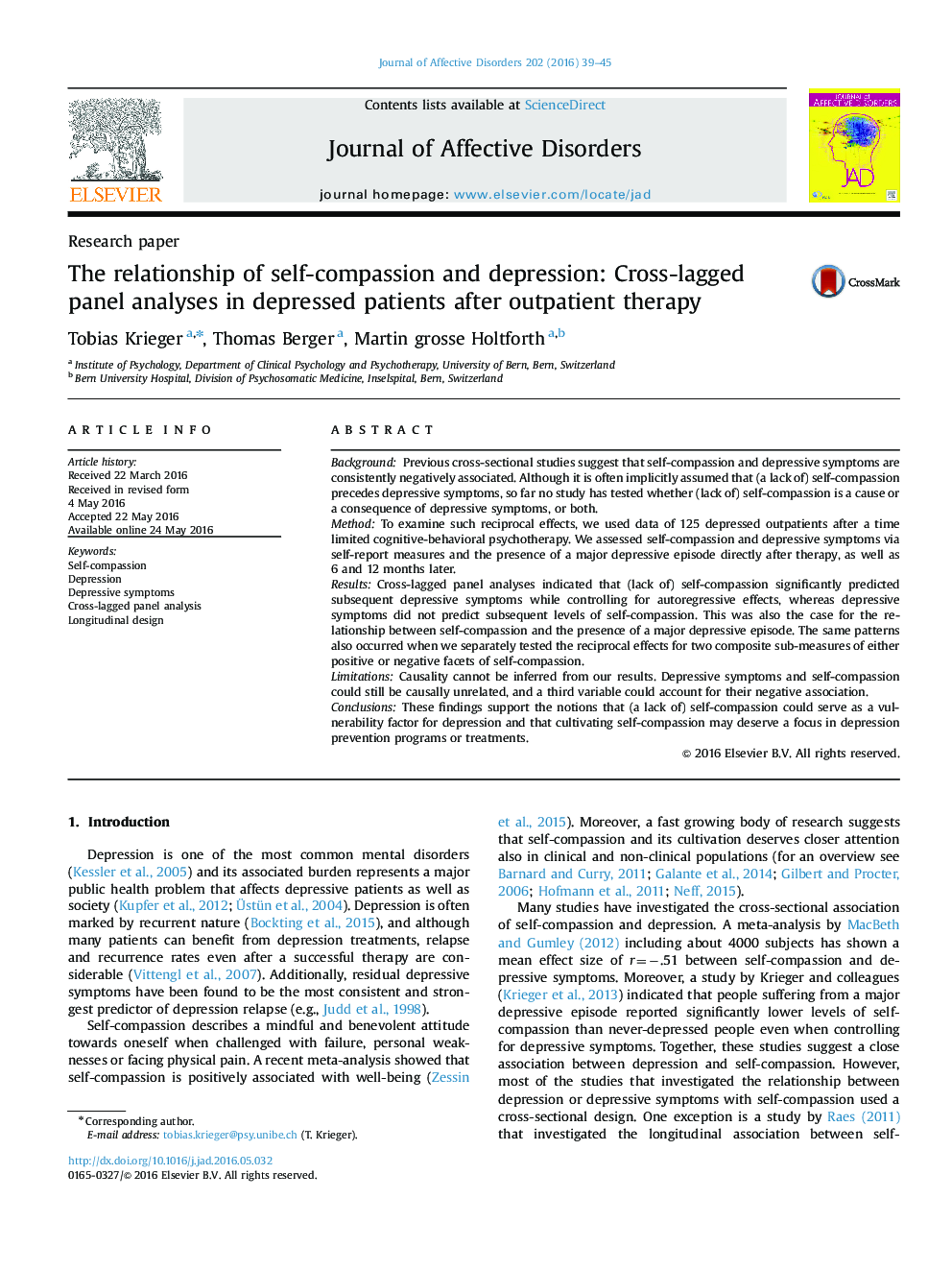| کد مقاله | کد نشریه | سال انتشار | مقاله انگلیسی | نسخه تمام متن |
|---|---|---|---|---|
| 6229919 | 1608123 | 2016 | 7 صفحه PDF | دانلود رایگان |
- (A lack of) self-compassion significantly predicted subsequent depressive symptoms.
- Depressive symptoms did not significantly predict subsequent levels of self-compassion.
- These patterns were also found for the presence of a major depressive episode.
- Patterns remained for either only positive or negative facets of self-compassion.
BackgroundPrevious cross-sectional studies suggest that self-compassion and depressive symptoms are consistently negatively associated. Although it is often implicitly assumed that (a lack of) self-compassion precedes depressive symptoms, so far no study has tested whether (lack of) self-compassion is a cause or a consequence of depressive symptoms, or both.MethodTo examine such reciprocal effects, we used data of 125 depressed outpatients after a time limited cognitive-behavioral psychotherapy. We assessed self-compassion and depressive symptoms via self-report measures and the presence of a major depressive episode directly after therapy, as well as 6 and 12 months later.ResultsCross-lagged panel analyses indicated that (lack of) self-compassion significantly predicted subsequent depressive symptoms while controlling for autoregressive effects, whereas depressive symptoms did not predict subsequent levels of self-compassion. This was also the case for the relationship between self-compassion and the presence of a major depressive episode. The same patterns also occurred when we separately tested the reciprocal effects for two composite sub-measures of either positive or negative facets of self-compassion.LimitationsCausality cannot be inferred from our results. Depressive symptoms and self-compassion could still be causally unrelated, and a third variable could account for their negative association.ConclusionsThese findings support the notions that (a lack of) self-compassion could serve as a vulnerability factor for depression and that cultivating self-compassion may deserve a focus in depression prevention programs or treatments.
Journal: Journal of Affective Disorders - Volume 202, 15 September 2016, Pages 39-45
